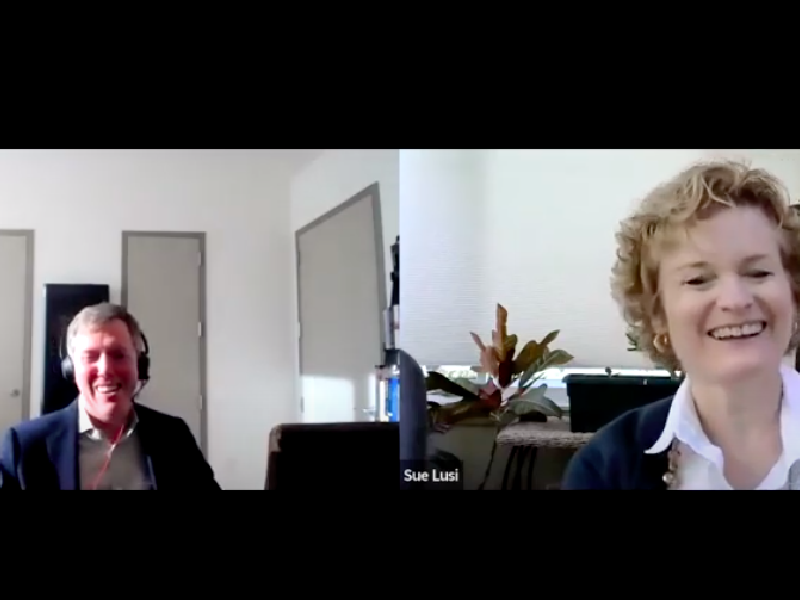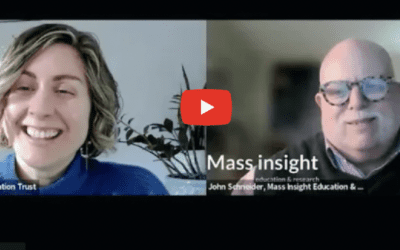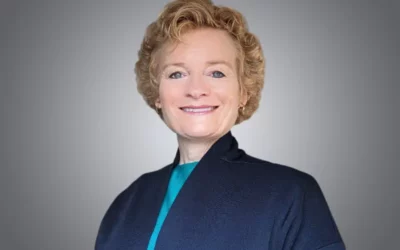Ms. Wolfe succeeds Dr. Susan Lusi, who will step down in June after leading the national nonprofit for eight years. April 18, 2024 – The Board of Directors of Mass Insight Education & Research has named Andrea Wolfe as the next President & CEO of the...
What learning in the COVID-19 era is teaching us
It has been a learn-as-you-go environment for everyone in education. The challenging times also have demanded that educators adapt quickly, and under duress many have catalyzed innovations that educators expect to deploy well after the COVID-19 era fades.
Coping and attempting to thrive in a world turned upside down – that was the focus of our webinar, Building Advanced Academic Pathways: Post COVID-19 and Beyond, held earlier this month. As moderator of the webinar, I was delighted to explore the new realities and where we go from here with three leading educators: Dr. Tanya Freeman-Wisdom, Head of School at the John D. O’Bryant School of Mathematics and Science in Roxbury, Mass.; Carmen Melendez-Quintero, the Director of English Learner Programs for the Worcester, Mass. Public Schools; and Trevor Packer, Senior VP of AP (Advanced Placement) and Instruction at the College Board.
It was an information-packed program, providing object lessons in adaptation and commitment to student success, from the adjustments and flexibility the College Board has instituted in administering the AP tests to how schools and districts have stepped up their game to connect and support students. Here are some quick takeaways from the event and challenges for all of us in education going forward:
- While COVID has profoundly disrupted traditional learning, rigorous coursework remains viable, and as important as ever, especially in disadvantaged communities. Fairness during COVID requires flexibility, additional supports,andcontinuing to hold students to the standards of college-level work. Colleges have not relaxed course expectations during the pandemic, according to Trevor, even though some courses are being taught remotely. AP qualifying scores signal college credit-worthy achievement. Lowering qualifying standards would leave students unprepared for higher level courses they entered in college. At the same time, though, students want and need increased opportunities to meet the standards during these extraordinary times. For this reason. the College Board has expanded testing options including choices in location, timing, and mode of taking the test.
- Remote learning, wisely deployed, can make us less remote and improve learning. Tanya and Carmen both impressively outlined how teachers and administrators are using online resources to connect with families, so critical to both ignite and support academic growth. I see teachers and students’ families becoming more connected than ever. And innovations like flipped classrooms (allowing students to “attend” class in the evenings) and online courses taught by master teachers should stay and will only enhance learning.
- Let’s use this crisis to double-down on addressing systemic educational inequities that leave so many students behind. After COVID, it will loom as an even greater challenge. The test data from this spring’s AP tests will be indicative of some grave learning loss trends — only the tip of the iceberg from K-12. If the impact of COVID doesn’t open our eyes to fully addressing the needs of districts, schools and students in disadvantaged communities, nothing will.
We were grateful to hear from such thoughtful and dedicated educators whose commitment to their students’ potential was unwavering, despite everything they have faced. As Carmen made clear, the pandemic can’t divert us from the hard and rewarding work of engaging families regarding the benefits of AP in culturally responsive ways and in the languages they speak. Our current virtual world helps here in some ways by making translators more readily accessible.
And in closing, Tanya beautifully summed up the spirit that has seen us through this crisis: “As educators, we cannot give up on students nor can we put a cap on their potential. We have to be the dreamers for them when they cannot dream.”
You can watch the full recording of the webinar here.

Recent Posts
Mass Insight Launches New Service to Tackle Chronic Absenteeism
The Targeted Intervention: Chronic Absenteeism will take a community-based exploratory approach to understanding the experiences of chronically absent students and efforts to increase student attendance. March 18, 2024 – Mass Insight Education & Research...
An Interview with Kristen Hengtgen of The Education Trust
https://youtu.be/1ZfxNShHJOU?si=d1a1GoVrgrDWT5Cu Kristen Hengtgen, Ph.D. is a senior analyst on The Education Trust's P-12 policy team and co-author of their new report, Increasing Access to Advanced Coursework in Massachusetts. In this interview, she joins Mass...
You may also like
An Interview with Kristen Hengtgen of The Education Trust
https://youtu.be/1ZfxNShHJOU?si=d1a1GoVrgrDWT5Cu Kristen Hengtgen, Ph.D. is a senior analyst on The Education Trust's P-12 policy team and co-author of their new report, Increasing Access to Advanced Coursework in Massachusetts. In this interview, she joins Mass...
Creating the conditions for greater success of systemically disadvantaged students in AP: Next steps for the Massachusetts AP STEM & English program
Recently the New York Times published an article entitled, Why is the College Board Pushing to Expand Advanced Placement? The article focuses on an important issue: there’s been greater growth in AP participation for Black and Latino students and students living in...
Recentering Our Communities in School Transformation: An Equity-First Approach
This is the final post in Mi’s Revisiting the Turnaround Challenge blog series. In Revisiting the Turnaround Challenge, we examined the outcomes of three “turnaround zones” implemented by urban public school districts in partnership with Mi between 2012-2019. Our goal...


